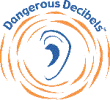
Dangerous Decibels Workshop to Train Teachers about Hearing Safety
Dangerous Decibels, a public health campaign that aims to reduce the incidence and prevalence of noise-induced hearing loss and tinnitus in school-age children, will present an educator training workshop at the Rosen Plaza Hotel in Orlando, Fla., Feb. 28 to March 1. The two-day, event, which immediately follows the National Hearing Conservation Association conference at the same site (Feb. 25-27), is designed to educate teachers about how best to change the knowledge, attitudes, and behaviors of their students toward exposure to loud sounds and use of hearing protection strategies.
"Health experts tell us that in order to bring about change in knowledge, attitudes, and behaviors, we must reach children with the message early and often," said Linda Howarth, Dangerous Decibels program coordinator. "If we can educate children about these issues early in life, they will be more likely to protect their hearing later when they are exposed to hazardous sounds at work and at play."
According to NHCA, the Dangerous Decibels classroom program has been rigorously evaluated and found to be highly effective in changing knowledge, attitudes, and intended behaviors in school-age children, and the program content is easily integrated into K-12 math and science educational curricula. The educator training workshop provides participants with information, teaching materials, practical experience, and logistical insights aimed at guaranteeing a successful program delivery in their classrooms.
Among the hearing conservation, health communication, and educational outreach experts presenting sessions at the workshop are:
- William (Billy) Hal Martin, Ph.D. -- Oregon Hearing Research Center/Oregon Health & Science University
- Susan Griest, MPH -- Oregon Hearing Research Center/Oregon Health & Science University
- Deanna Meinke, Ph.D. -- University of Northern Colorado
- Linda C. Howarth -- Oregon Hearing Research Center/Oregon Health & Science University
The workshop will include background information on hearing, anatomy, physics of sound, children and noise, and more. Instruction will cover classroom management, hands-on activities, and an opportunity to deliver the program to instructors for critique and feedback. Participants will receive an educator kit with graphics, simulations, supplies, a script, and a sound level meter needed to present the program in their own classrooms.
For more information about the workshop and to register, visit http://hearingconservation.org/.